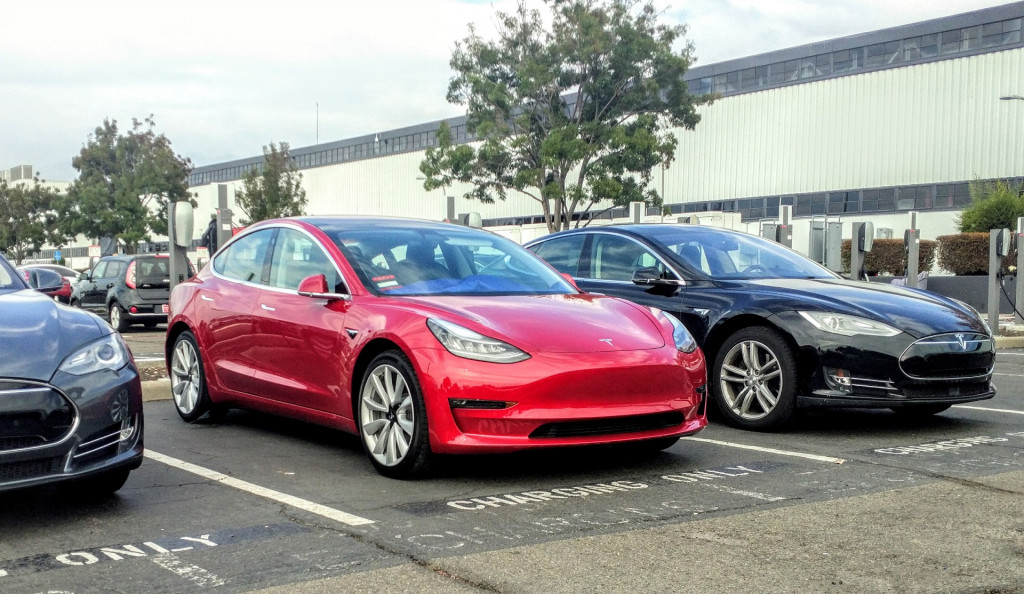The most important green-car story of 2017 came on September 10, in a report by the Associated Press that covered articles in two Chinese state media outlets on a statement by a deputy industry minister.
Speaking at "an auto industry forum," the AP wrote, Xin Guobin said his ministry has begun "research on formulating a timetable to stop production and sales of traditional energy vehicles," as he noted "some countries" have already done.
The statements were published by the state Xinhua News Agency and the Communist Party newspaper People's Daily, meaning they represented official government policy.
DON'T MISS: China developing timetable to end sales, production of gasoline cars
The impact of the world's largest country, and largest car market, saying that it will ban sales of cars with internal-combustion engines at some point in the future cannot be understated.
Chinese policy often emerges with many twists and turns, and is always formulated to help the country's interests—not those of foreign companies doing business there—but this was a monumental statement.
Motor vehicles with internal-combustion engines date back to 1875, and engines power all but a handful of the globe's 1.2 billion vehicles.

Beijing smog
We now know their emissions of the climate-change gas carbon dioxide have contributed to manmade global warming since then.
While small European countries have announced various versions of goals to ban sales of such cars, cleaner vehicles sold in Norway or The Netherlands will have only a small impact on overall carbon emissions from transportation.
China's new-vehicle market, on the other hand, is now more than 30 million cars and trucks a year, nearing twice the sales in the U.S., the world's next-largest market.
READ THIS: Sales of cars with engines proposed to end in The Netherlands by 2030
The country's government-industrial policy has long been to dominate global sales of photovoltaic solar cells, lithium-ion battery cells, and plug-in electric cars.
This policy not only furthers those goals, but eliminates vehicular contributions to the severe air pollution that blankets most Chinese cities and has become a source of citizen unhappiness and unrest.
China is happy to emerge as a world leader in efforts to attack carbon emissions; this past January it canceled more than 100 coal-fired power plants, including some already under construction.

BYD e6 electric taxi in service in Shenzhen, China
For all those reasons, even though we don't know yet know the year when it will take effect, the Chinese plans to ban sales of all but vehicles with zero tailpipe emissions is clearly the year's most significant newsstory.
Our recent Twitter poll on the question of the most important green-car topic this year indicated that a large proportion of our readers feel that story is the launch of the Tesla Model 3.
We disagree, because that story hasn't yet been written.
CHECK OUT: What was our most important story of 2017? Twitter poll results
We'll find out in the first few days of January how many Model 3s Tesla has been able to deliver in this year's fourth quarter, but total deliveries since the first 30 were handed over in July are likely to be only a few thousand.
The Model 3, remember, is the car that was supposed to get Tesla to production of 5,000 electric cars a week by ... this week. That apparently hasn't happened.
If it happens during 2018, Tesla's growth—from a maker that delivered 76,000 cars in 2016 and around 100,000 this year to one delivering 20,000 cars a month—may be the green-car story of the year in 2018.

2017 Tesla Model 3 in Tesla assembly plant parking lot, Fremont, CA, November 2017
But for 2017, China's decision is this year's most important story.
The impact it will have on global automakers forced to build large numbers of battery-electric vehicles that can appeal to Chinese buyers is not yet apparent.
But it's clear the Chinese national government is serious about changing the cars sold in that country: As Bloomberg reports, it has mandated an end to production of 553 separate vehicles that don't meet stiffer fuel-economy rules.
That ban takes effect on January 1, 2018.
_______________________________________












